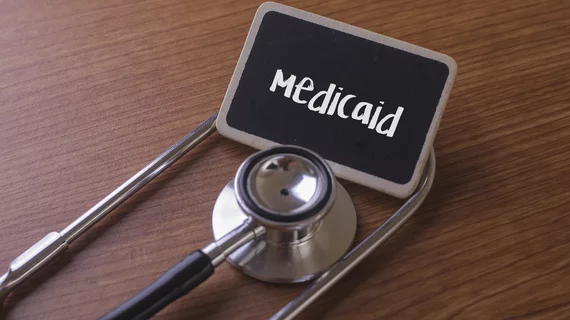Millions of Americans have 'unnecessarily' lost Medicaid coverage since April
New data reveal that more than 1 million people have been disenrolled from Medicaid since the redetermination process began on April 1.
What’s more, that figure does not account for all enrollees that will be affected, as not all states have started their redetermination process. Twenty-two were expected to begin in June, nine in July and another in October, according to an analysis out of health policy research hub KFF (formerly the Kaiser Family Foundation).
The redeterminations began following the expiration of continuous coverage requirements enacted during the COVID pandemic. Although the Centers for Medicare and Medicaid Services (CMS) allows states up to 12 months to complete the redetermination process, many started reviewing enrollees’ eligibility on April 1—the day after the continuous enrollment condition expired.
Since then, at least 1,027,000 people have been disenrolled from Medicaid, according to a state data analysis from KFF, with more than half of those occurring in Florida, Arizona and Arkansas. In Florida alone, approximately 250,000 individuals were reported to have lost Medicaid coverage as of June 12.
Many of those who have been disenrolled did not lose coverage because they were deemed ineligible during the redetermination process, but because of procedural reasons, such as not completing required paperwork. This is the case for more than 80% of those affected in Kansas, Indiana, Connecticut, West Virginia, Florida, Arkansas and New Hampshire, the report indicates.
This figure caught the attention of the U.S. Department of Health and Human Services Secretary Xavier Becerra, who expressed feeling "deeply concerned" with the number of people who are losing coverage for reasons that are avoidable.
In a June 12 letter addressed to U.S. governors, Becerra urged states to “adopt all options” that HHS has provided to assist with the redetermination process.
“As full Medicaid renewals begin, it is critically important to ensure that individuals do not lose coverage due solely to administrative processes,” Becerra wrote, later elaborating on several new flexibilities states can take advantage of to make the redetermination process run more smoothly.
“HHS is committed to doing everything in its power to ensure that our children have access to care they need. Even if parents think they are no longer eligible, states should ask parents to still fill out their renewal forms for their children,” the HHS secretary suggested.
A full list of state strategies can be found here.

